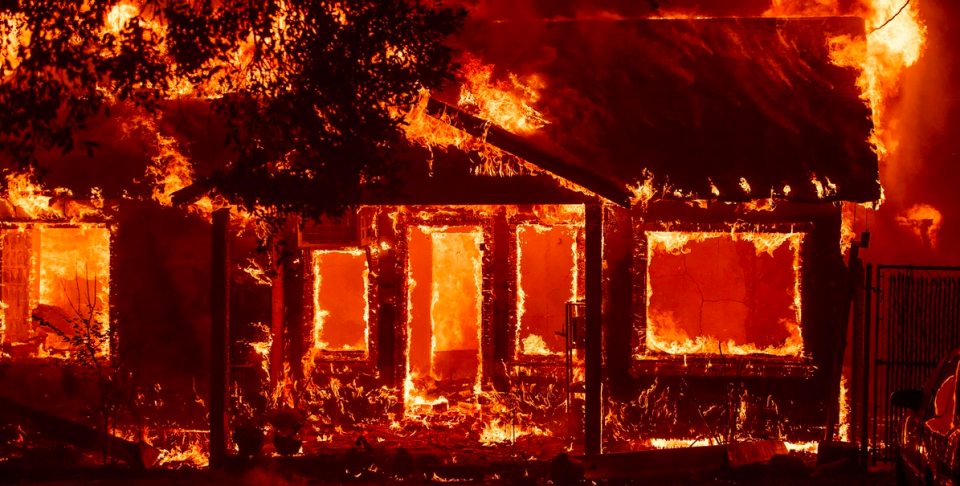Insurance industry looks to update risk models as climate risks escalate
With 2020 shaping up to be one of the hottest years on record, the insurance industry, already hobbled by the coronavirus pandemic, is bracing for another wave of insurance claims.
If 2019 is any guide, economic losses from climate-related disasters could top $137 billion, according to figures from insurance company Swiss Re.
“The severity of [loss costs] is increasing in part because you’re seeing weather trends happening differently,” said Sean Kevelighan, CEO and president of the Insurance Information Institute. “Loss costs have increased from the 80s, over 660%.
The impact of rising claims has been most acutely felt in California, where wildfires from 2017 and 2018 wiped out 25 years of the industry’s profits. According to the state’s climate change assessment, insurance costs are expected to rise nearly 20% by 2055.
“What we’ve seen after a couple of years of the most catastrophic fires in California is really this challenge of finding affordable insurance and also having availability of insurance products in California in some of our most vulnerable areas,” said California Insurance Commissioner Ricardo Lara.
The state has battled wildfires for decades, but Lara says 2018 was a big wakeup call for insurance companies operating there.
The Camp Fire in Paradise devoured 95% of the community within hours, destroying 19,000 homes, killing people. The fire was the world’s single costliest natural disaster that year, bringing the total amount of insured losses in the state to $18 billion, according to Munich Re.
Worldwide, losses from global natural disasters topped $225 billion in 2018.
Insurance claims have grown so costly and damaging in California, providers started canceling policies of longtime customers in fire-prone parts of the state. That prompted Lara to step in late last year and take the unprecedented step of imposing a one-year moratorium on the practice, protecting more than a million residential policies.

“You hear stories time and time again of Californians who have been with their insurance company for 20, 30 years, all of sudden getting dropped at the moment where they actually need some certainty,” Lara said. “I just thought it was inhumane.”
For attorney Joseph Earley, those stories are personal. The Paradise resident lost his home and office to the Camp Fire. Over the last 18 months, he’s helped his community rebuild by guiding them through the insurance red tape and successfully pushing for a $13.5 million settlement with PG&E (PCG) the utility company responsible for sparking the fire.
“My fear is that there isn't enough funds to deal with people's needs, to get them to be able to move forward,” Earley said. “It's the second- to third-largest settlement in the history of this country. I don't think there's any more money available for it, but I know it's not enough. I know because I know what I lost and there's no way I can recover what I lost.”
Becky and Lee Nelson lost the place they called home for 40 years in the wildfire. They successfully filed their insurance claim, but say the payout doesn’t begin to cover the cost of rebuilding.
“We're not sure we have water on our property because the water mains were damaged,” Becky Nelson said. “We don't know if our septic tanks made it. There is obviously no power on this property. We really didn't have enough coverage to handle all of that and put our house back in its original form.”
Kevelighan said insurance companies are scrambling to reassess their risk models, to get ahead of natural disasters. That includes working with developers to understand areas most exposed to extreme climate and using data to help homeowners plan for the risks ahead. Kevelighan also says insurance companies need to create a business model that ensures their sustainability.
“We’ve got to make sure we price it in a sound manner in order to stay in business,” he said. “You probably will likely, as risks increase, see prices increase. That’s how insurers have to respond when risks are happening. That’s just the model that we have right now.”
Akiko Fujita is an anchor and reporter for Yahoo Finance. Follow her on Twitter @AkikoFujita
